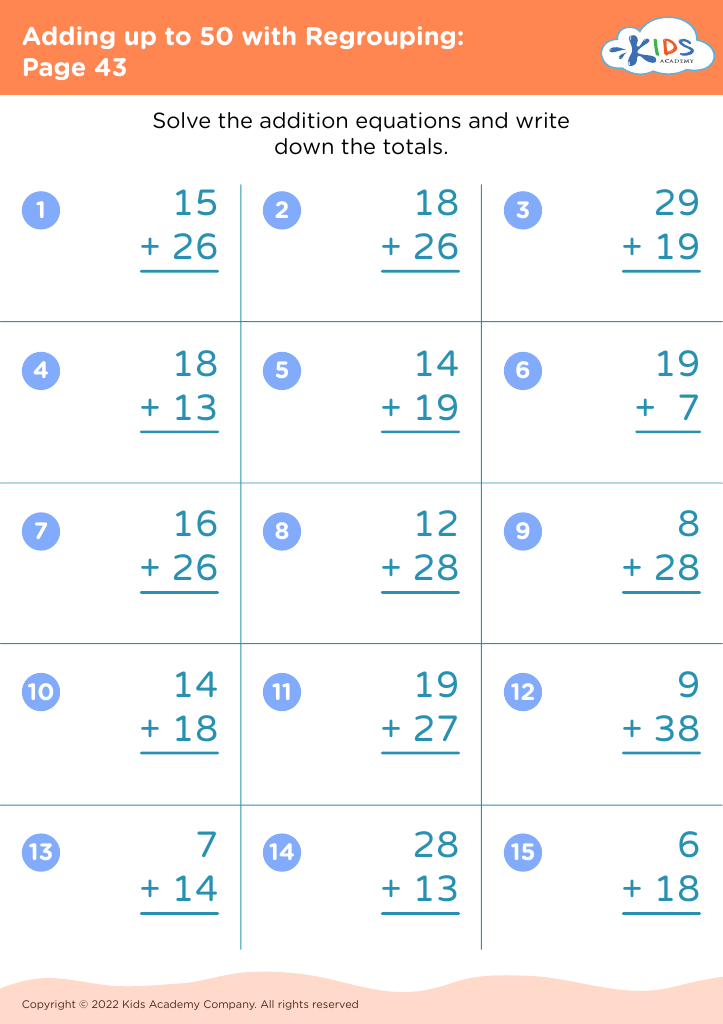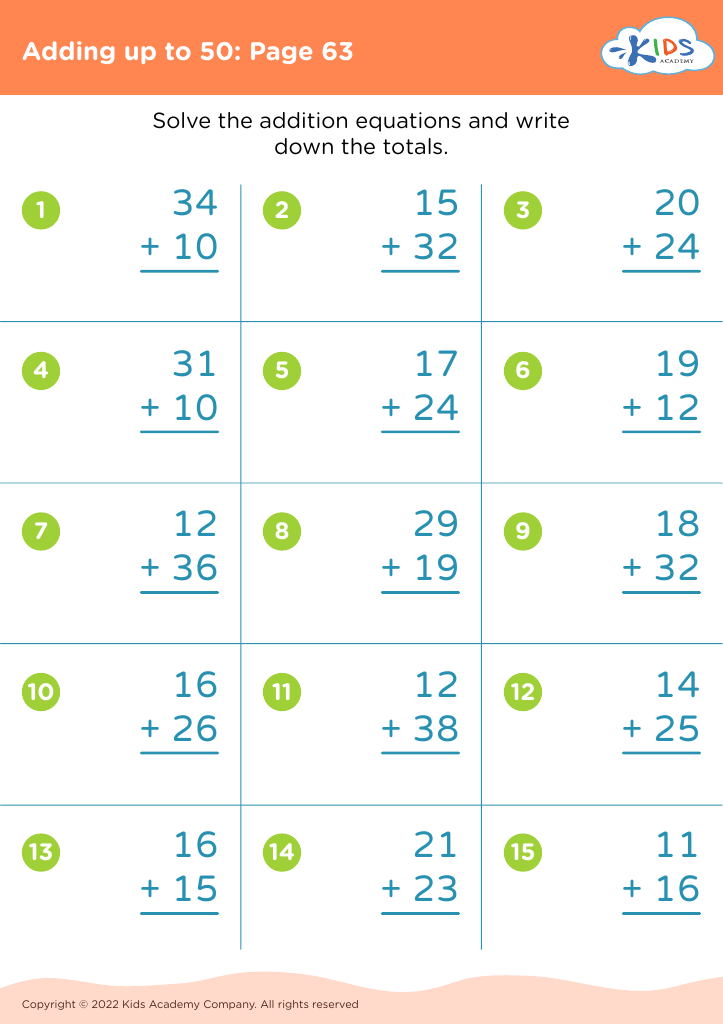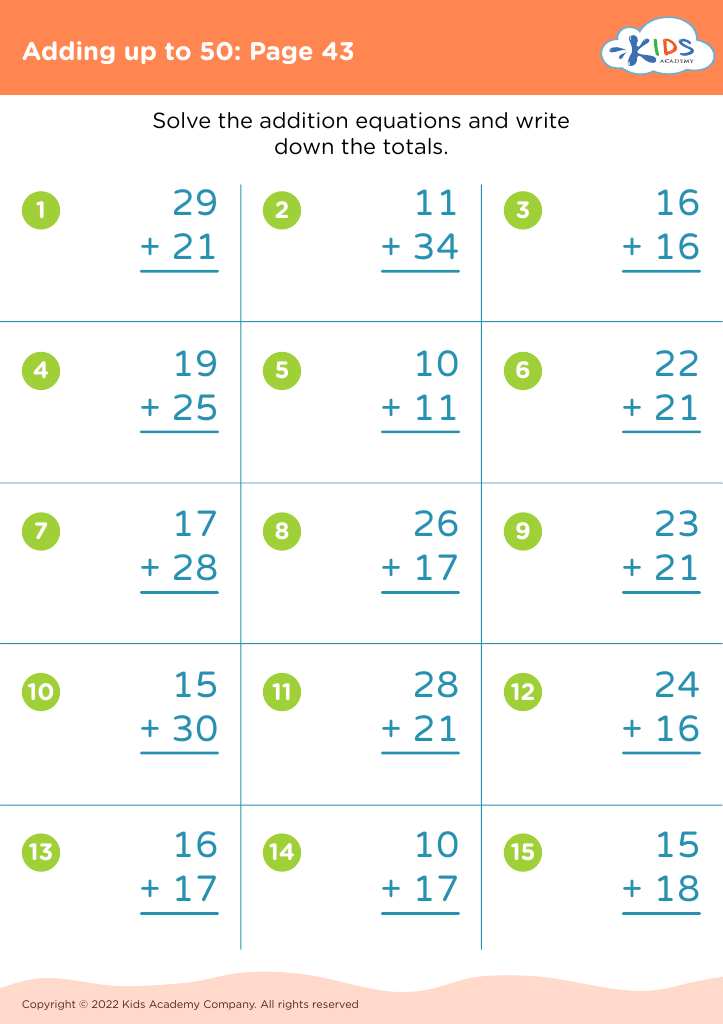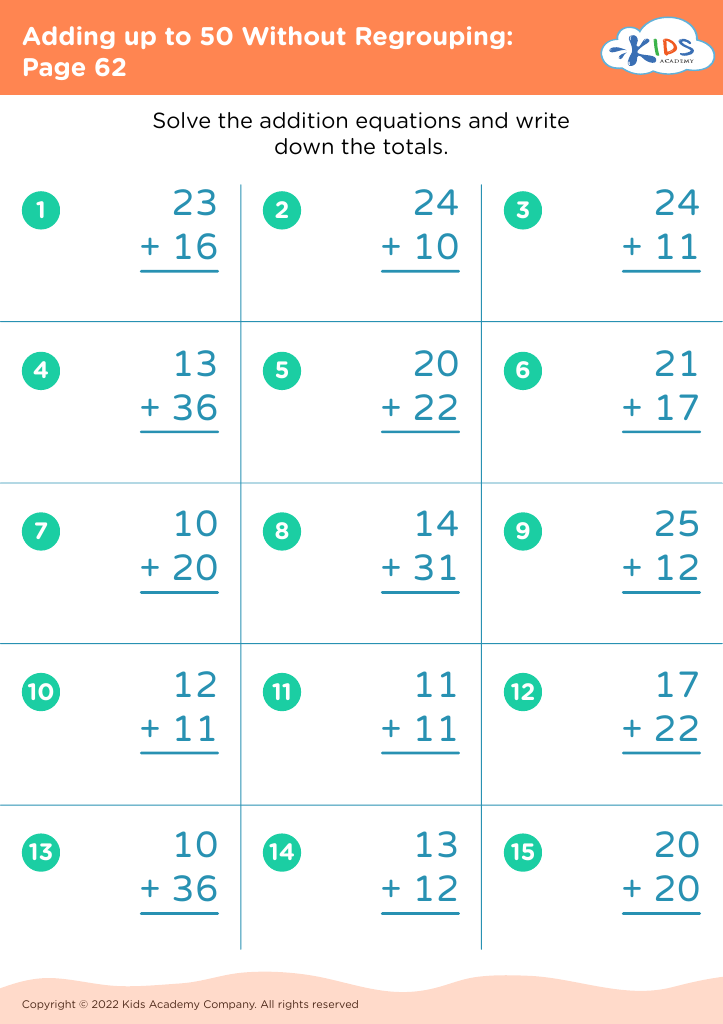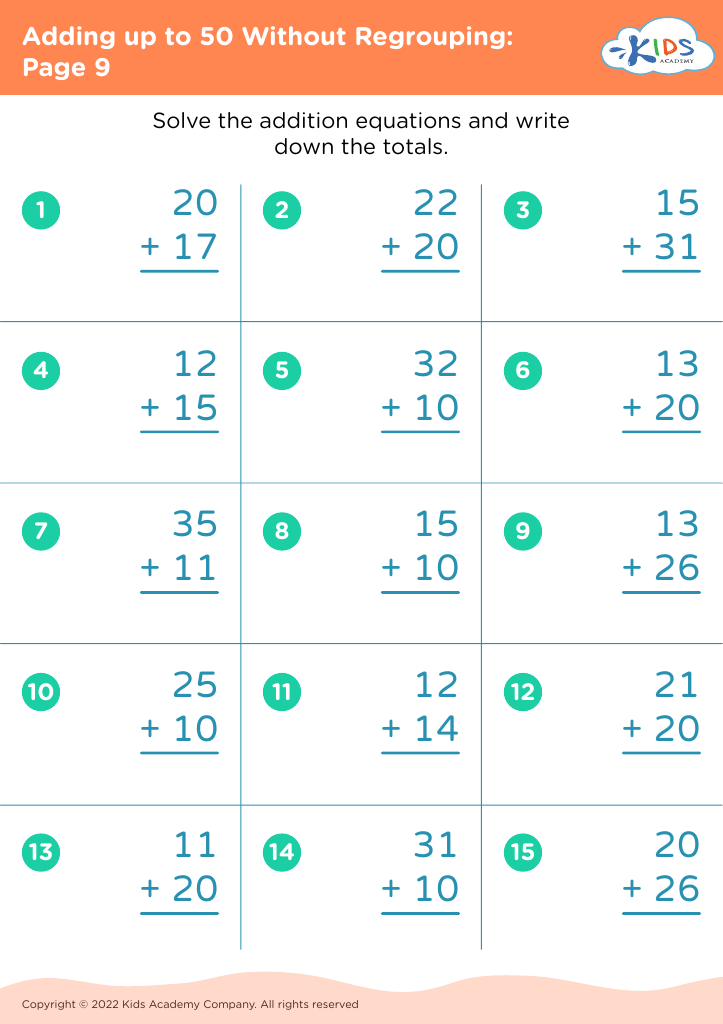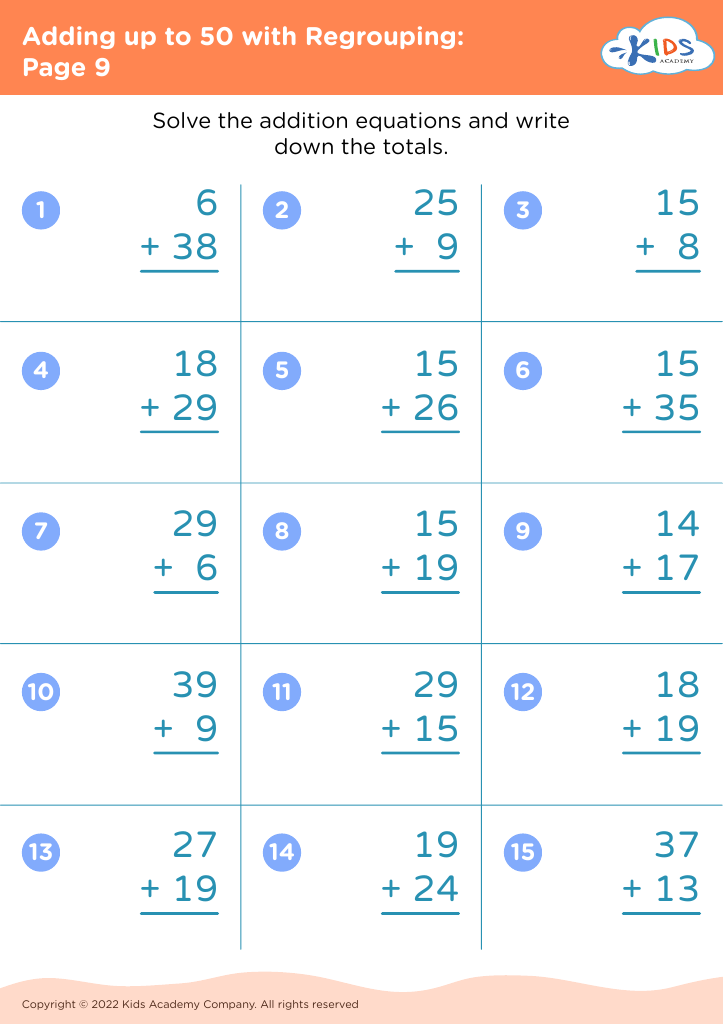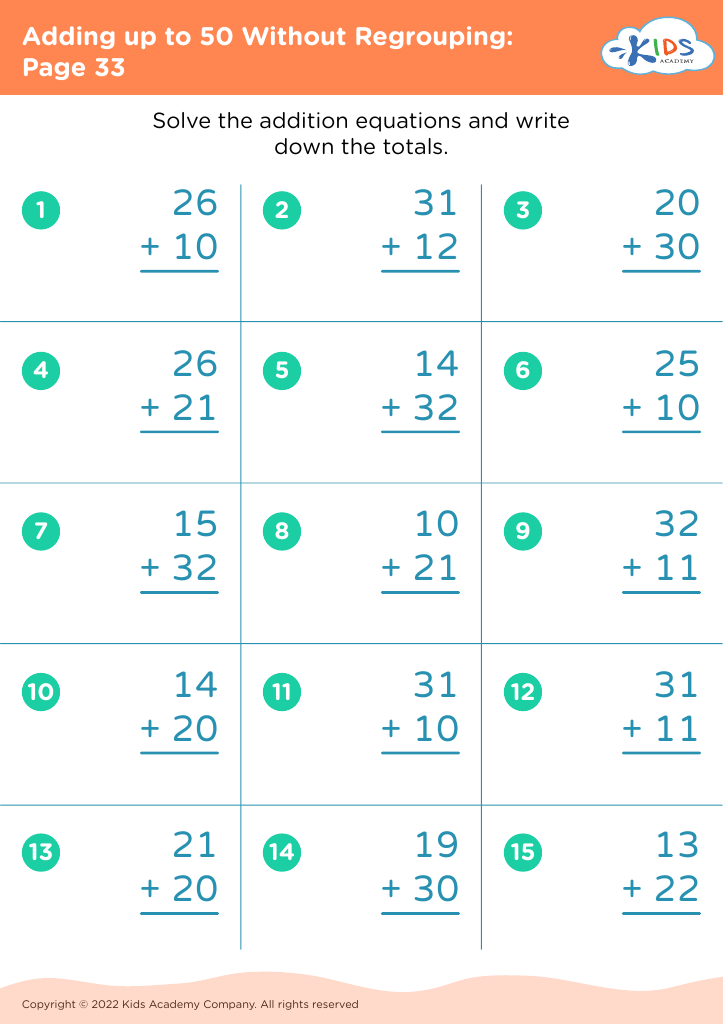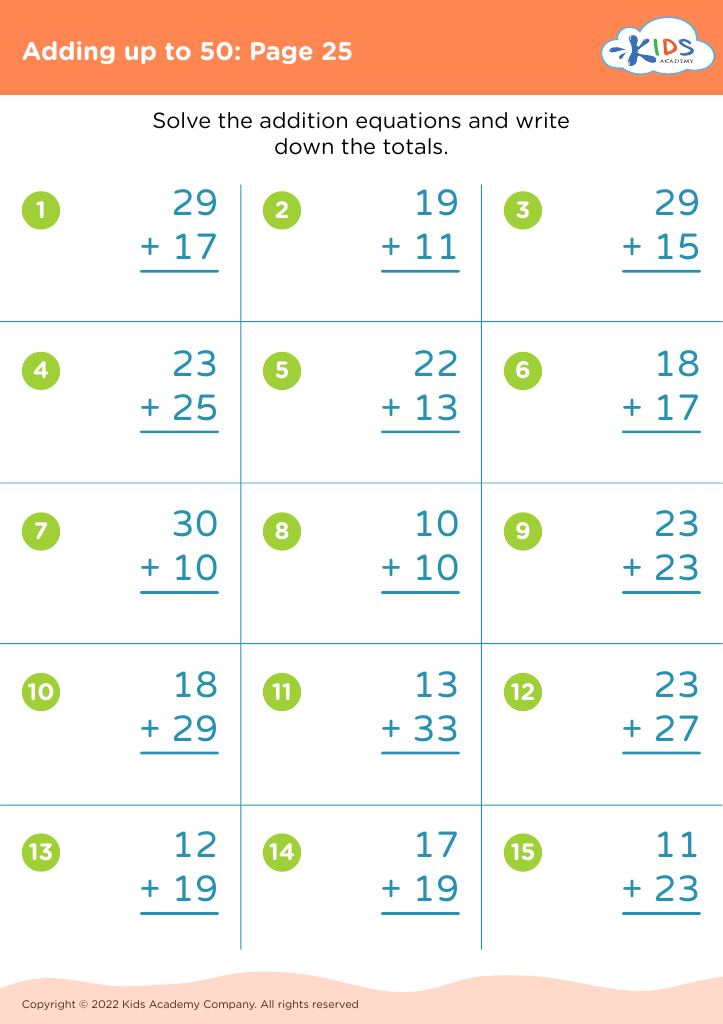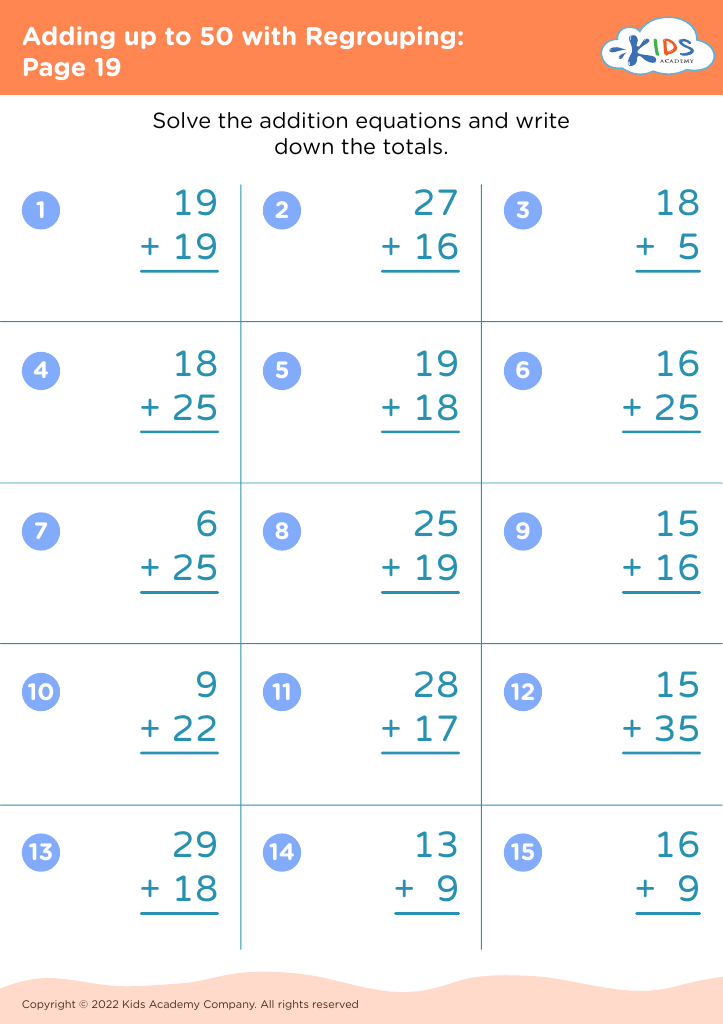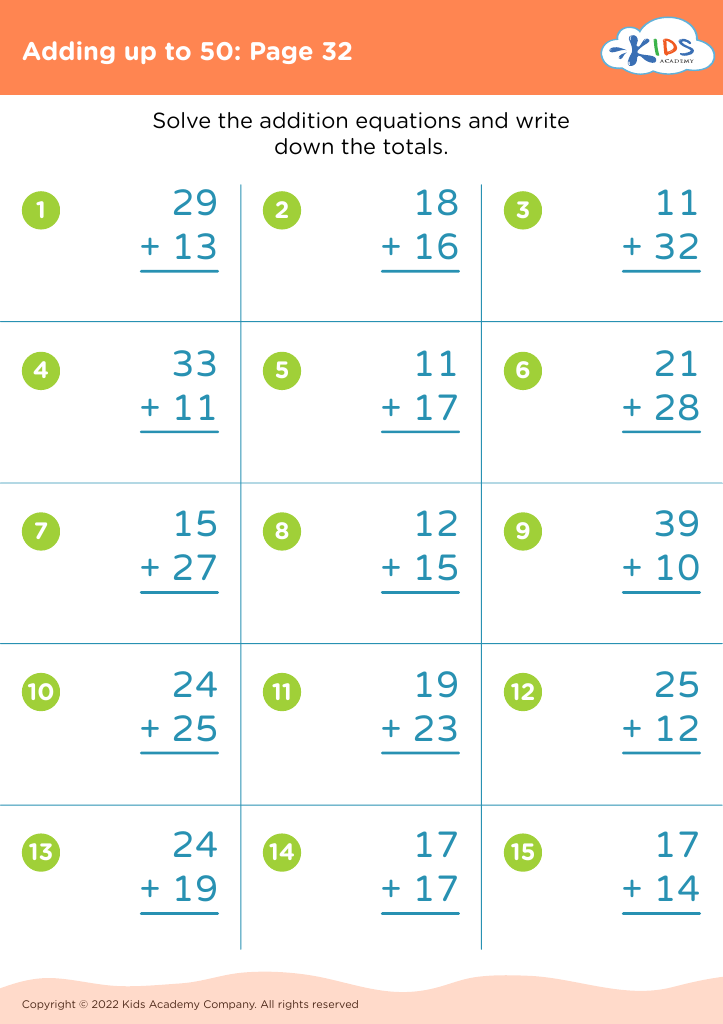Addition Practice Adding up to 50 Worksheets for Ages 6-8
16 filtered results
-
From - To
Unlock the fun of math with our "Addition Practice Adding up to 50" worksheets, specially designed for children aged 6-8. These engaging, colorful worksheets provide playful and interactive exercises that help young learners master addition skills confidently. As they practice adding numbers up to 50, kids will develop problem-solving abilities and strengthen their math foundations. Each worksheet is tailored to cater to different learning styles, fostering both comprehension and retention. Ideal for home or classroom use, these resources offer endless opportunities for practice and learning. Watch your child's confidence soar as they embark on their math journey!
Parents and teachers should prioritize addition practice up to 50 for children aged 6-8 because this foundational skill is critical for their overall mathematical development. At this age, kids are transitioning from simple counting to grasping more complex numerical relationships. Mastery of addition lays the groundwork for future math concepts, including subtraction, multiplication, and division.
Additionally, being proficient in addition up to 50 can enhance children's confidence, making math feel less daunting as they encounter more challenging topics in higher grades. It encourages a strong number sense—helping kids recognize patterns and understand the relationships between numbers, which are crucial skills not just in math, but in everyday situations, such as budgeting and time management.
Engaging in systematic addition practice also fosters critical thinking and problem-solving abilities. Group activities and games can make learning fun, allowing children to collaborate and socialize while developing these essential skills. Moreover, parents and teachers can monitor progress, address difficulties early, and celebrate improvements, reinforcing a positive attitude toward learning. In essence, adequately supporting addition practice lays the groundwork for success across all subjects, ensuring children are equipped for both academic and daily life challenges.


